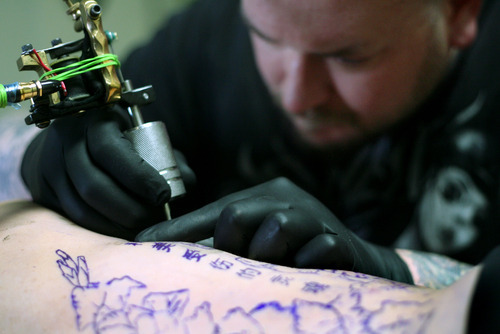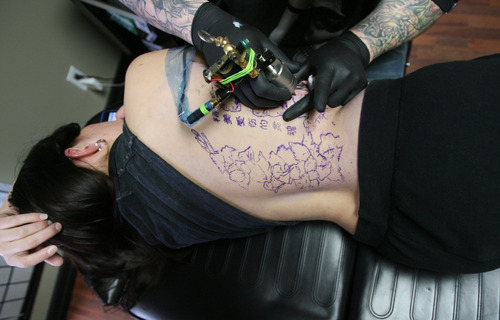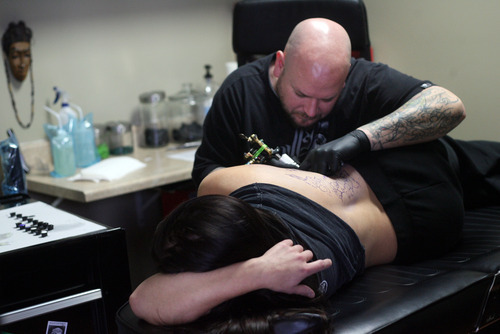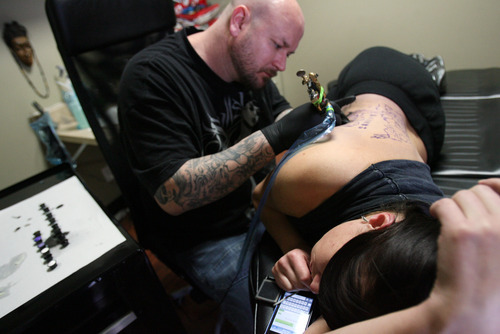This is an archived article that was published on sltrib.com in 2012, and information in the article may be outdated. It is provided only for personal research purposes and may not be reprinted.
Clearfield • Tattoo artists in Davis County are now prohibited from branding and cutting the skin to cause decorative scars under an updated ordinance approved Tuesday by the county Board of Health.
Subdermal implants done by the artists are also off-limits, and health officials raised the cost of tattoo parlor permits to $100, up from $50. In addition, the ordinance sets a standard for the kinds of metal that can be used in any "personal ornament" inserted in a pierced area.
Tattooing, body piercing and permanent makeup applications are still permitted.
The county had not received complaints about body art techniques and many of the changes came about at the request of tattoo artists themselves, said Dave Spence, director of the Davis County Health Department's Environmental Health Services Division. The department revamped all its regulations last fall, he said, and officials met in January with representatives from about 15 of the 20 tattoo parlors.
Many asked for tighter standards, arguing that it was too easy for an inexperienced artist to open shop, which could lead to dangerous practices. Some asked that tattoo artists be licensed by the county but that proposal was rejected.
Micah Langsholt, owner of Micah's Twisted Tattoo Co. in Layton, said she's pleased with the updates, including the new requirements on materials used in body art jewelry. Some customers who had body piercing done at other shops have shown up at her place with rashes because the metal contained nickel, she said.
The updated ordinance says the jewelry must be nickel free. Approved materials include surgical implant grade stainless steel, gold, titanium, fused quartz glass and lead-free soda-lime glass.
In response to requests by tattoo artists, the ordinance also:
Adds a requirement that tattoo parlors have a separate hand wash sink. One sink can serve no more than three artists and can be used only for washing hands.
Deletes "dry heat sterilizer" in the section on sterilizing instruments. Parlor operators said that type of cleaning did not meet industry standards. Cleaning must be done only with a steam autoclave.
Requires all operators to provide proof of current first aid and CPR training at the request of the health department.
Twitter: @PamelaMansonSLC









